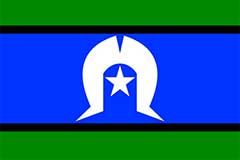
Formerly, National Aborigines Day Observance Committee (NAIDOC), founded in 1957 to promote the first Sunday in July as a day for focusing Australians’ attention on the Aboriginal communities in their midst. The National Missionary Council of Australia (NMCA), since 1940, had been encouraging churches to observe the Sunday before the Australia Day weekend as Aboriginal Sunday. The NMCA had taken up a suggestion by William Cooper, who, following his successful promotion of a �?day of mourning’ on Australia Day 1938, had written to the NMCA seeking help in establishing a permanent Aborigines Day. In 1955 the NMCA changed the date to the first Sunday in July and secured the support of federal and state governments, as a result of which NAIDOC was formed. The establishment of the federal DAA boosted the activities of NAIDOC, which in 1974 became an all-Aboriginal body.
In 1975 NAIDOC extended Aboriginal Day into National Aborigines Week, during which the Aboriginal people’s cultural heritage and contribution to Australian society are celebrated. Various activities are arranged for each day of the week wherever it is celebrated. In more recent years National Aborigines Weeks have followed particular themes. For instance, the 1987 theme was �?White Australia has a black history’, a timely reminder to non-Aboriginal Australians as they entered the year of the bicentenary of European settlement. Since 1976 NAIDOC has run as a federal body and in 1989 the word �?Islander’ was added to the title which became the National Aboriginal and Islander Observance Committee, hence NAIDOC.
Text by Dr Ian Howie-Willis.




